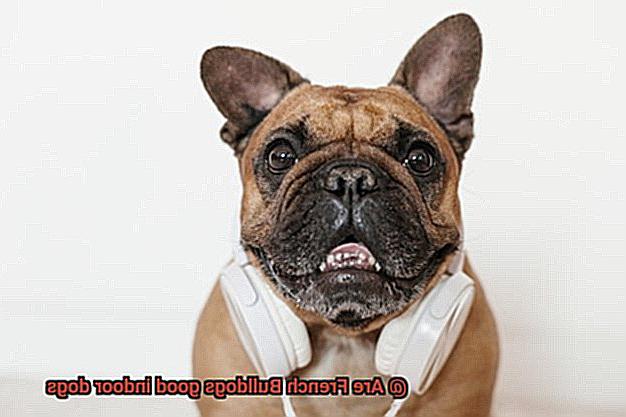Are French Bulldogs good indoor dogs?
If you’re on the hunt for a furry friend that’s as cute as can be and loves snuggling up indoors, then boy, do we have some insight for you.
French Bulldogs have these adorable bat-like ears and a super affectionate nature that has made them super popular in recent years. But what makes them so great for living the indoor life?
Well, in this post, we’re gonna dive into their temperament, exercise needs, and how well they adapt to being cooped up inside. By the end of it, you’ll have all the deets you need to decide if a French Bulldog is your perfect match for an indoor companion.
Let’s get started.
The Advantages of Having a French Bulldog as an Indoor Pet
Contents
- 1 The Advantages of Having a French Bulldog as an Indoor Pet
- 2 How to Exercise Your French Bulldog Indoors
- 3 The Benefits of French Bulldogs in Urban Areas
- 4 How to Keep Your French Bulldog Comfortable Indoors
- 4.1 Temperature control – Keeping it just right:
- 4.2 A snug spot of their own – Providing proper bedding:
- 4.3 Exercise, even indoors – Keeping them active:
- 4.4 Mental stimulation – Engaging their minds:
- 4.5 Hydration matters – Ensure fresh water always:
- 4.6 Grooming for comfort – Keep them clean and healthy:
- 5 Understanding the Temperament of a French Bulldog
- 6 The Importance of Socialization for Indoor Living
- 7 Tips on Training Your French Bulldog Indoors
- 8 The Benefits of Having a Companion Dog Indoors
- 9 Conclusion
Look no further than the French Bulldog. These adorable little dogs are not only cute and lovable but also have a range of qualities that make them ideal for indoor living. In this blog post, we will explore the advantages of having a French Bulldog as an indoor pet, from their adaptability to their low-maintenance grooming routine.
Adaptable Size:
French Bulldogs are small in size, making them the perfect fit for apartment or condo living. Their compact size means they can comfortably navigate through smaller spaces, ensuring they won’t feel cramped or restricted indoors. Living in a smaller area doesn’t mean you have to compromise on having a furry companion.
Low Exercise Requirements:
Unlike some high-energy breeds, French Bulldogs have relatively low exercise requirements. While they still need regular exercise to maintain their health, a short walk or play session indoors can usually suffice. This makes them an excellent choice for individuals or families who may not have the time or physical ability to provide extensive exercise opportunities.
Calm and Well-Behaved:
French Bulldogs have a calm and laid-back nature, making them well-suited for indoor living. They are not overly energetic or hyperactive, reducing the likelihood of destructive behavior indoors. You won’t have to worry about your furniture being chewed up or your belongings being knocked over by an overly enthusiastic pup.
Clean and Odor-Free:
One of the perks of having a French Bulldog as an indoor pet is their cleanliness. They have a short coat that does not shed excessively, meaning less fur to clean up around the house. Additionally, they do not have a strong odor, making them an excellent choice for those who may be sensitive to pet smells.
Social and Affectionate Companions:
French Bulldogs thrive on human interaction and make wonderful indoor companions. They are known for their friendliness and love being part of the family. Whether you’re relaxing on the couch or working from home, your French Bulldog will be right by your side, providing constant companionship and emotional support.
Good with Children and Other Pets:
If you have children or other pets at home, a French Bulldog can be a great addition to your family. They have a gentle temperament and generally get along well with children and other animals. You can rest easy knowing that your French Bulldog will be a friendly and loving companion to everyone in the house.
Low-Maintenance Grooming:
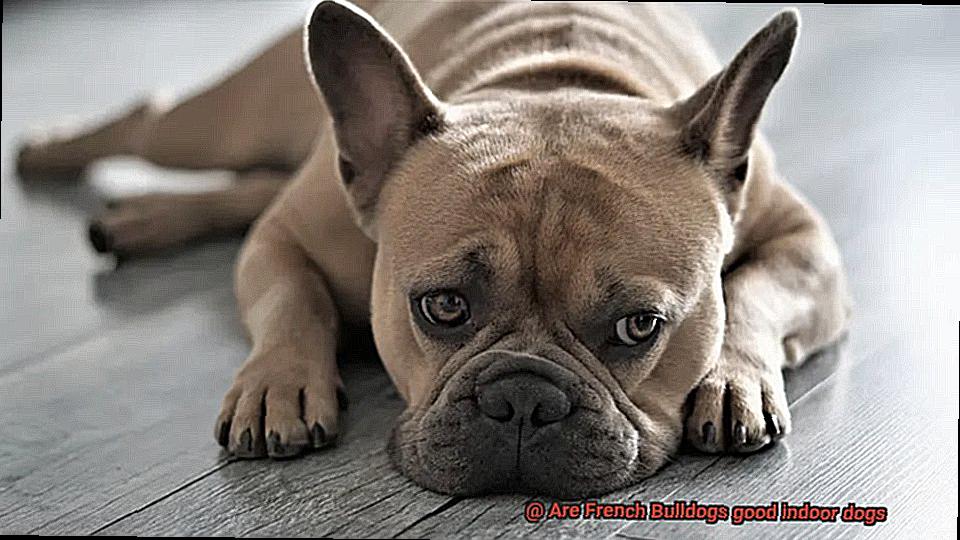
French Bulldogs have a short coat that requires minimal grooming compared to breeds with longer hair. A quick brush every now and then is usually sufficient to keep their coat looking neat and tidy. This low-maintenance grooming routine can be advantageous for individuals who prefer a fuss-free pet or may have allergies to pet dander.
How to Exercise Your French Bulldog Indoors
French Bulldogs are adorable and affectionate companions that thrive on human interaction. While they may not require as much exercise as some other breeds, it’s essential to provide them with regular physical activity to keep them healthy, engaged, and prevent weight gain. In this article, we will explore five fun ways to exercise your French Bulldog indoors.
Interactive Toys for Mental Stimulation:
Interactive toys are a great way to keep your French Bulldog mentally stimulated while also providing physical exercise. Puzzle games, treat-dispensing toys, and interactive fetch toys challenge their problem-solving skills and encourage movement. These toys can be found at pet stores or easily made at home using simple household items.
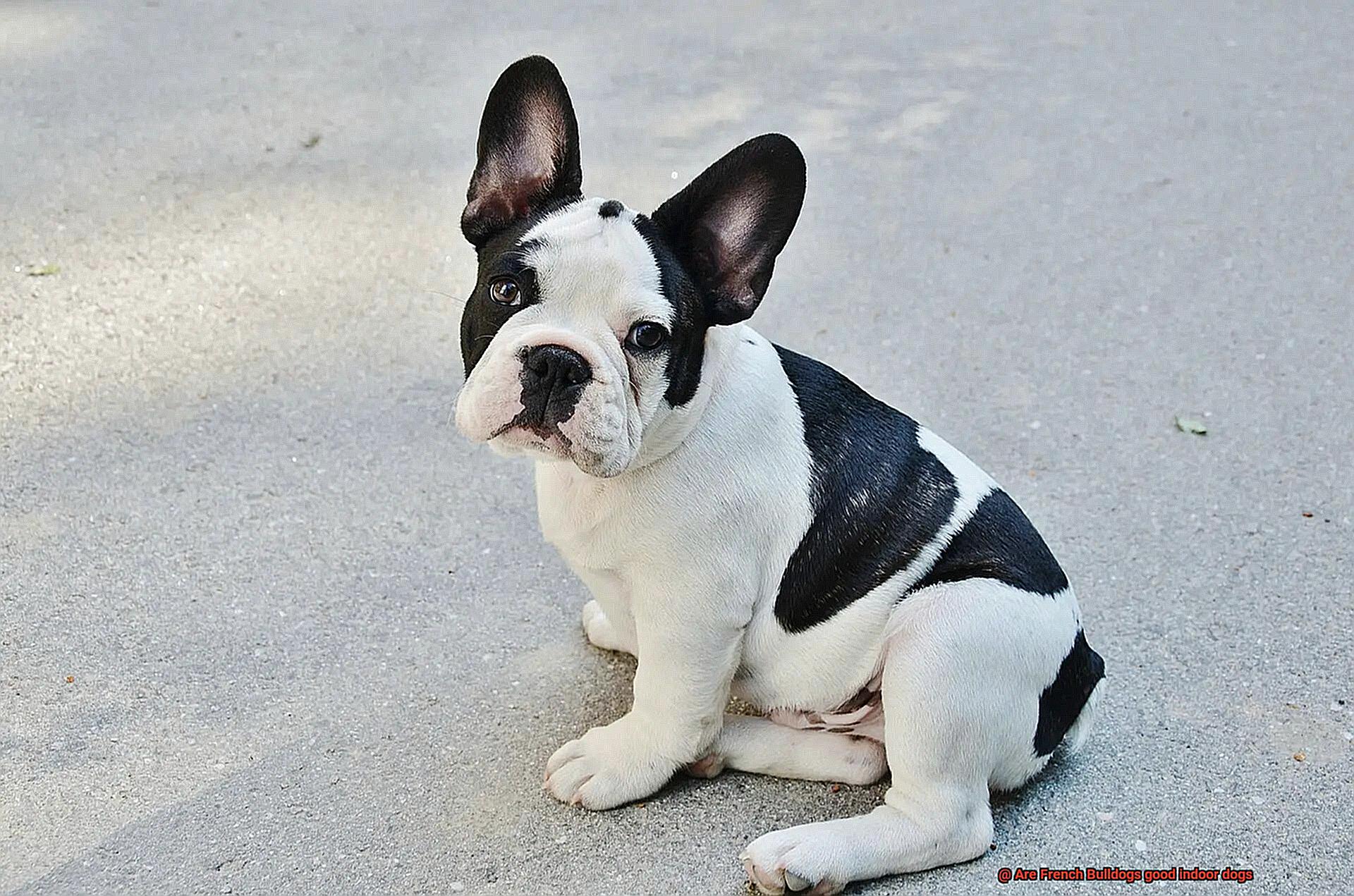
Fetch Games for Physical Activity:
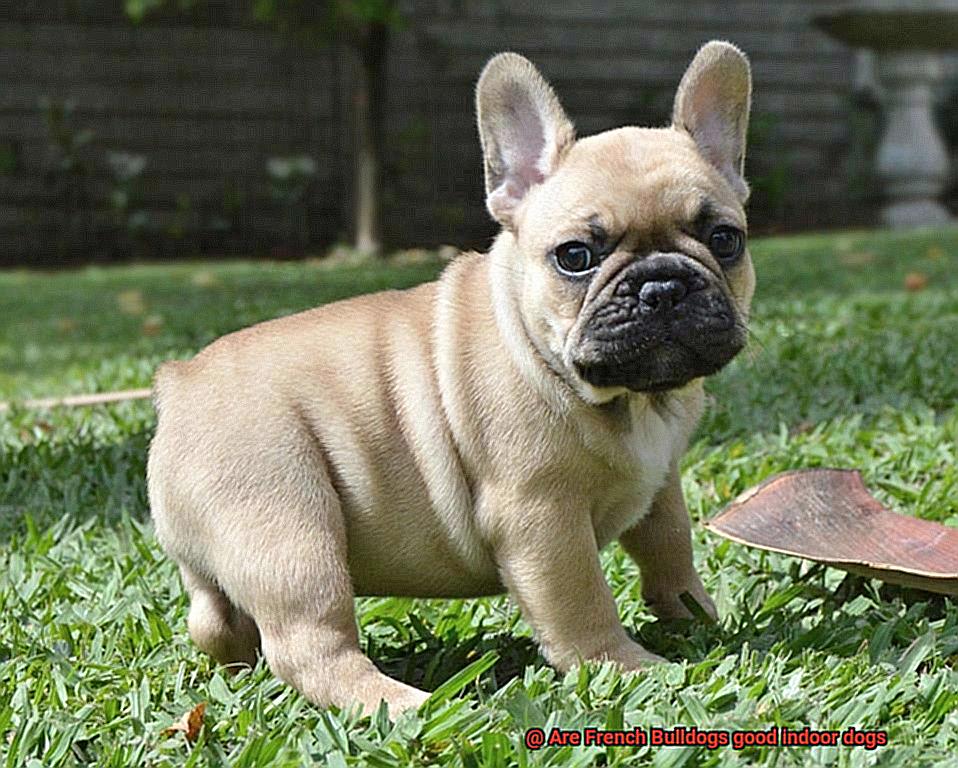
Playing fetch is a classic game that can be adapted for indoor play. Choose a soft or lightweight toy that won’t cause damage, and designate a specific area for the game. Gently throw the toy and encourage your French Bulldog to retrieve it. This simple game allows them to burn off energy while practicing obedience commands like “drop it” or “leave it.”
Playdates with Other Dogs:
Socializing with other dogs is not only fun but also provides excellent exercise for your French Bulldog. Arrange playdates with friends or family members who have compatible dogs and let them play together in a secure and spacious area of your home. Supervise their playtime to ensure safety and prevent any rough play.
Stair Exercises:
If you have stairs in your home, you can utilize them to provide a good workout for your French Bulldog. Encourage them to climb up and down the stairs gradually, ensuring their safety by closely supervising their movements. Stair exercises help strengthen leg muscles and provide cardiovascular benefits.
Indoor Obstacle Courses:
Create an exciting indoor obstacle course using household items like cushions, tunnels, and hula hoops. Guide your French Bulldog through the course, encouraging them to crawl under blankets, jump over cushions, or weave through hoops. This activity improves their coordination, agility, and overall physical fitness.
The Benefits of French Bulldogs in Urban Areas
Well, you’re in luck because your furry friend is the perfect companion for urban living. In this article, we’ll dive into the numerous benefits of having a French Bulldog in an urban area. From their adaptability to their low exercise needs, these little bundles of joy are a match made in heaven for city dwellers.
Compact Size and Easy Transportation:
French Bulldogs are small but mighty. Their compact size makes them a breeze to transport, whether it’s strolling through the city streets, hopping on public transportation, or exploring local parks. No need to worry about cumbersome leashes or bulky carriers – these pups can easily accompany you on any urban adventure.
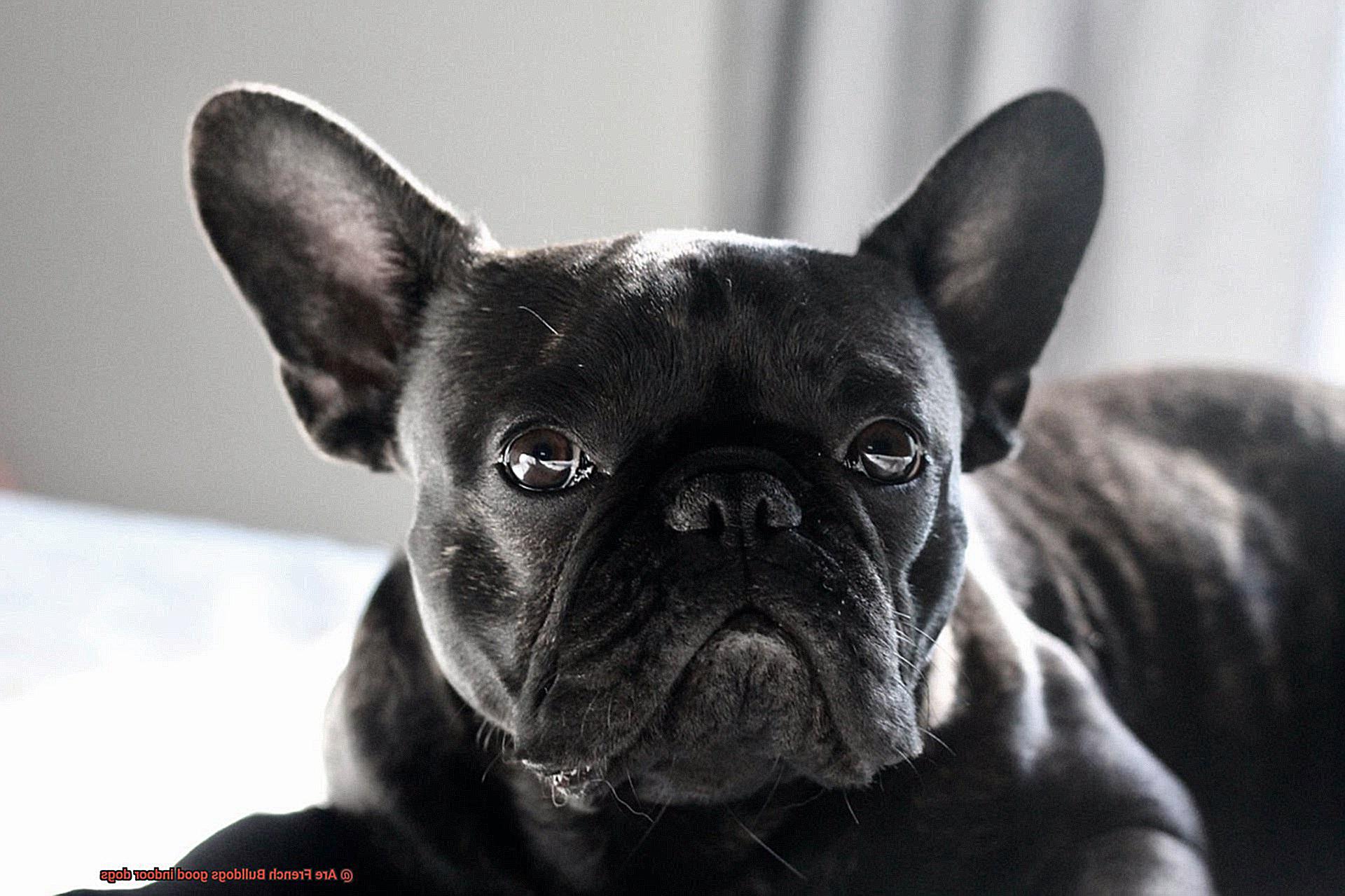
Adaptability to Small Spaces:
Living in the city often means dealing with limited space, but fear not. French Bulldogs are masters of adaptation. They are content and comfortable in small apartments or condos, making them an ideal choice for urban environments. Say goodbye to space restrictions and hello to snuggly cuddles on your cozy couch.
Good Behavior Indoors:
Apartment living requires good behavior from our four-legged friends, and French Bulldogs excel in this area. Known for their calm and well-behaved nature, these pups won’t cause a ruckus with excessive barking or destructive behavior. Your neighbors will thank you for choosing such a well-mannered breed.
Sociable Nature:
Living in close quarters with neighbors and their pets? No problem. French Bulldogs are social butterflies who enjoy the company of both humans and other animals. Whether it’s meeting new friends at the local park or joining you for a coffee date at a dog-friendly cafe, these pups will fit right into your urban social scene.
Low Exercise Needs:

Let’s face it, city life can be hectic, leaving little time for extended walks or intense exercise routines. Luckily, French Bulldogs have low exercise needs, making them the perfect companions for busy urban dwellers. A short walk around the block or some indoor playtime is usually enough to keep them happy and healthy.
Low Shedding and Easy Grooming:
Cleanliness and hygiene are top priorities in urban areas, and French Bulldogs have got you covered. With their short coats and minimal shedding, these pups require minimal grooming. Say goodbye to pesky pet hair and hello to a low-maintenance lifestyle.
Brachycephalic Breed:
Living in an urban area with high temperatures or pollution levels? Don’t worry, French Bulldogs are less likely to suffer from heat exhaustion or respiratory issues due to their brachycephalic nature. However, it’s important to provide them with a comfortable and well-ventilated living environment.
How to Keep Your French Bulldog Comfortable Indoors
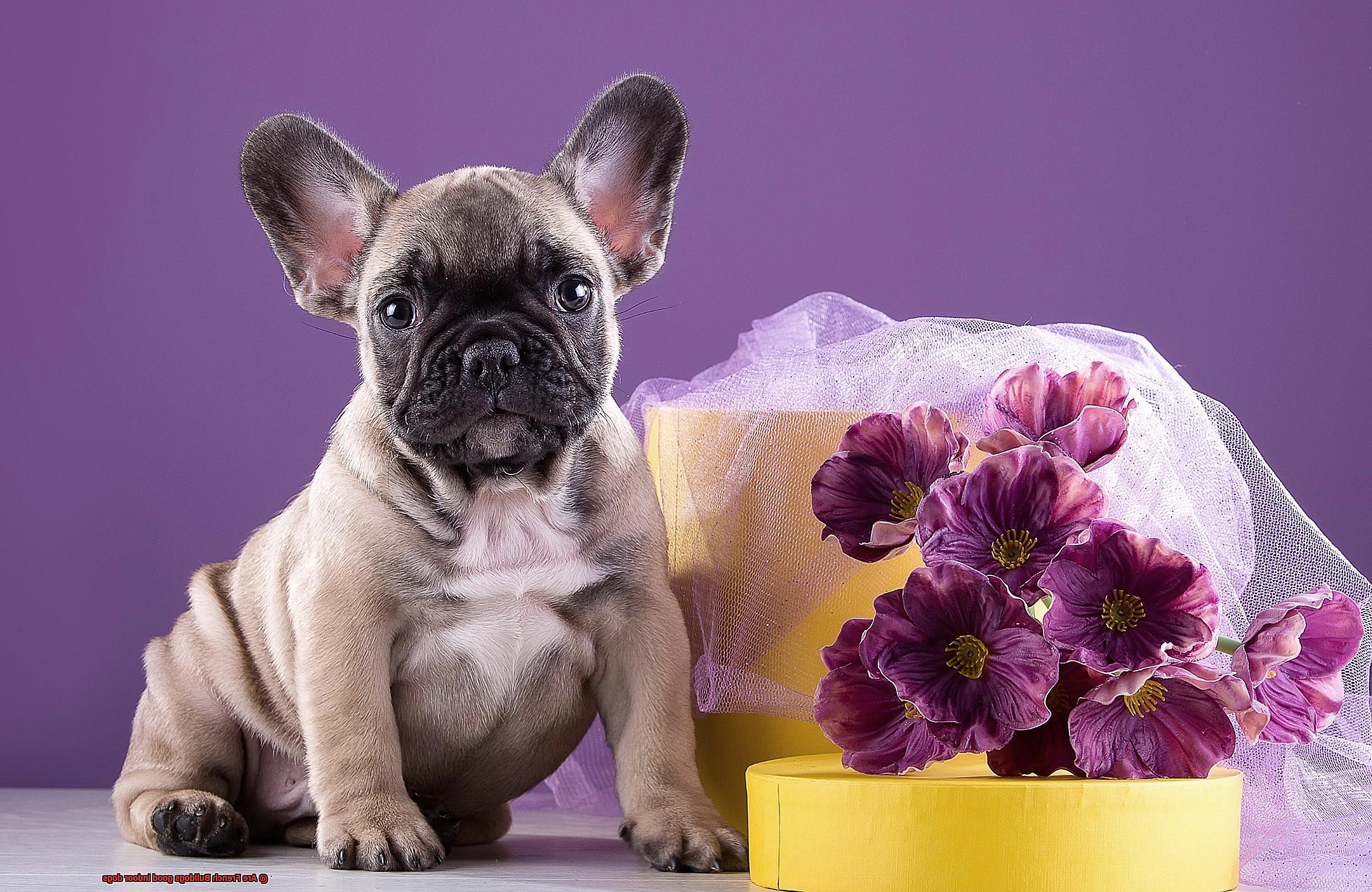
French Bulldogs are adorable, affectionate, and well-suited for indoor living. Whether you live in a small apartment or a cozy house, providing a comfortable environment is essential for your furry friend’s well-being. In this article, we will explore some key tips to create a cozy haven for your French Bulldog indoors.
Temperature control – Keeping it just right:
French Bulldogs are sensitive to extreme temperatures. Avoid exposing them to excessively hot or cold conditions. Ensure that your home is at a comfortable temperature year-round. Provide adequate ventilation and shade in the summer and warmth in the winter.
A snug spot of their own – Providing proper bedding:
French Bulldogs love to snuggle up and sleep. Offer them a cozy and comfortable bed that provides support and cushioning. Choose a bed size appropriate for their compact frames, ensuring they have enough space to stretch out and relax.
Exercise, even indoors – Keeping them active:
Although French Bulldogs are not high-energy dogs, regular exercise is still important for their health and happiness. Engage them in short walks around the house or play interactive games that get them moving. This will help prevent obesity and keep them mentally stimulated.
Mental stimulation – Engaging their minds:
French Bulldogs are intelligent dogs that thrive on mental stimulation. Provide them with interactive toys, treat puzzles, or engage in obedience training sessions to keep their minds sharp and engaged. This will prevent boredom and promote a happy and contented pup.
Hydration matters – Ensure fresh water always:

Make sure your French Bulldog has access to fresh water at all times, especially during warmer months when they may need more hydration. Consider using a spill-proof water dish to prevent any messes.
Grooming for comfort – Keep them clean and healthy:
Regular grooming is necessary to keep your French Bulldog comfortable indoors. Brush their coat regularly to remove loose hair and prevent matting. Pay special attention to cleaning their facial folds to prevent infections. Keep their nails trimmed and ears clean for their overall well-being.
Understanding the Temperament of a French Bulldog
Understanding the Temperament of a French Bulldog: Perfect for Indoor Living.
French Bulldogs, or “Frenchies” as they are affectionately known, have a temperament that is tailor-made for indoor living. These adorable little pups are known for their affectionate and friendly nature, making them the ultimate companions for those who prefer the comforts of home. Let’s dive into their temperament traits and explore why French Bulldogs are the perfect indoor pets.
- Social Butterflies: French Bulldogs thrive on human interaction and love being around their owners. They are like little shadows, following you from room to room, always wanting to be a part of the action. This social nature makes them great indoor dogs as they easily adapt to the close proximity of their human family members.
- Calm and Relaxed: Unlike some high-energy breeds, French Bulldogs are generally calm and relaxed. They don’t require excessive exercise and are content with short walks or play sessions indoors. This laid-back nature also makes them less likely to become destructive when confined to an indoor environment, making them ideal for apartment living or smaller homes.
- Adaptability at its Finest: French Bulldogs are masters of adaptability. They can handle changes in routine or environment without much difficulty, making them suitable for families with varying schedules or those who travel frequently. Whether you’re a jet-setting adventurer or a homebody who enjoys routine, a Frenchie will fit right in.
- Watchdog Wonders: Despite their small size, French Bulldogs have a courageous and protective nature. They may not hesitate to defend their owners if they sense any threat or danger. This makes them excellent watchdogs, providing a sense of security in an indoor setting.
- Playful Pups: French Bulldogs have a playful side that adds an extra dose of fun to your indoor adventures. They enjoy interactive toys and games, which can keep them mentally stimulated while indoors. Providing them with enrichment activities and puzzles can help prevent boredom and destructive behavior.
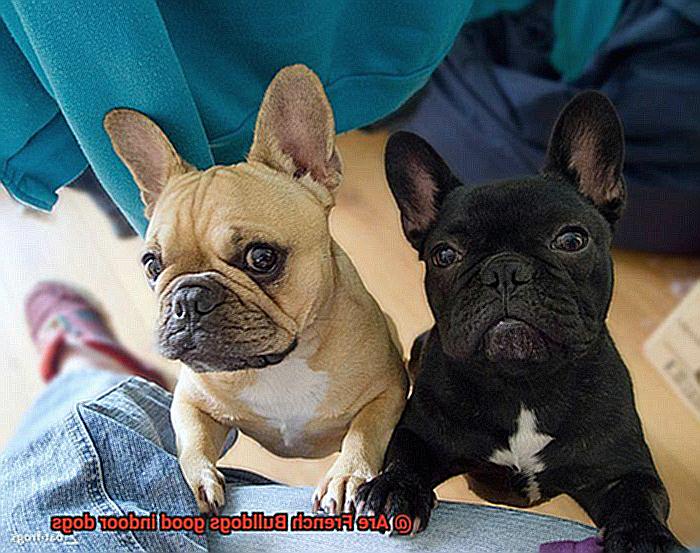
However, it’s important to note that French Bulldogs may not always get along well with other animals. They can be territorial and possessive, especially when it comes to their owners. Early socialization and proper training are crucial to ensure they can coexist peacefully with other pets in the household.
In conclusion, French Bulldogs possess a temperament that is well-suited for indoor living. Their affectionate nature, adaptability, low exercise requirements, and protective instincts make them the perfect companions for individuals or families living in apartments or smaller homes. Just remember to provide them with the love, attention, and mental stimulation they need to thrive in their cozy indoor kingdom.

The Importance of Socialization for Indoor Living
French Bulldogs are beloved for their affectionate and sociable nature, making them ideal indoor companions. However, it is essential to understand the importance of socialization for these delightful pooches in an indoor living environment. In this article, we will explore the reasons why socialization is crucial for French Bulldogs living indoors and how it benefits their overall well-being.
Preventing Behavioral Issues:
Proper socialization helps prevent behavioral issues in French Bulldogs. Without exposure to various people, animals, and environments, they may become anxious or fearful, leading to aggression or destructive behavior. Socialization from an early age allows them to learn appropriate interaction skills and feel more comfortable in new situations.
Developing Good Manners and Obedience Skills:
Socialization teaches French Bulldogs how to behave properly around other people and animals. This is particularly important in indoor living where they interact with family members, friends, or other pets on a daily basis. By learning good manners and obedience skills, they reduce the chances of conflicts or incidents.
Providing Mental Stimulation:
French Bulldogs are intelligent and curious by nature. Without enough mental stimulation, they may become bored and engage in destructive behaviors like chewing furniture or excessive barking. Socialization activities such as introducing them to new environments or engaging in interactive play sessions with other dogs can keep their minds active and prevent boredom.
Enhancing Overall Well-being:
Socialization plays a vital role in the overall well-being of French Bulldogs. Exposure to different people and animals helps build their confidence and reduces anxiety or fearfulness. This has a positive impact on their temperament and happiness, making them more enjoyable companions in an indoor setting.
Tips on Training Your French Bulldog Indoors
Training your French Bulldog indoors can be a rewarding experience that strengthens the bond between you and your furry friend. With their intelligence and willingness to please, French Bulldogs are relatively easy to train. In this guide, we will provide you with some helpful tips to ensure successful indoor training sessions.
Start Early: Socialization and Obedience Training
It’s important to start training your French Bulldog from a young age. Early socialization and obedience training are crucial for their development. Introduce them to different people, animals, and environments to help them become well-rounded and confident dogs.
Positive Reinforcement is Key
Positive reinforcement techniques, such as treats, praise, and playtime, are effective ways to motivate your French Bulldog during training sessions. Reward them immediately when they exhibit the desired behavior to reinforce it positively.
Break it Down into Steps
Break down training tasks into small, manageable steps to prevent overwhelm and ensure success. For example, if you’re teaching them to sit, start by rewarding them for bending their knees slightly and gradually work towards a full sit position.
Consistency is Key
Consistency is vital when training your French Bulldog indoors. Establish a routine and stick to it, providing regular training sessions throughout the day. This will help reinforce the desired behaviors and prevent confusion.
Clear Commands and Signals
Use clear and concise commands that your dog can easily understand. Use consistent hand signals or verbal cues to reinforce the desired behavior. For example, use a firm “sit” command accompanied by a hand signal every time you want them to sit.
Create a Designated Training Area
Set up a designated training area in your home where you can focus on teaching your French Bulldog new commands and tricks. Make sure the area is free from distractions and provides enough space for movement.
The Benefits of Having a Companion Dog Indoors
French Bulldogs are known for their friendly and affectionate nature, making them excellent companions for indoor living. They thrive on human interaction and love to be near their owners, so having them indoors allows for constant companionship and bonding opportunities.
Adaptability to Small Living Spaces
One of the key benefits of having a French Bulldog indoors is their adaptability to small living spaces. These dogs do not require a large yard or extensive exercise, making them ideal for apartment or city living. They are content with short walks and indoor playtime, which can easily be accommodated in a smaller living environment.
Relatively Low-Energy Dogs
French Bulldogs are also known to be relatively low-energy dogs. While they still require regular exercise, they do not have the same high energy levels as some other breeds. This means that they can adapt well to a more relaxed indoor lifestyle, enjoying leisurely activities such as lounging on the couch or cuddling up with their owners.
Well-Behaved and Well-Mannered
Another benefit of having a French Bulldog indoors is their tendency to be well-behaved and well-mannered. These dogs are generally easy to train and eager to please, making them suitable for apartment living where good behavior is essential. They quickly learn house rules and are typically respectful of their indoor surroundings.
Quiet Nature
Additionally, French Bulldogs are known for being relatively quiet compared to other breeds. They are not excessive barkers and generally do not create disturbances in an indoor setting. This makes them suitable for people who live in close quarters or have neighbors in proximity.
Safety and Protection
Having a French Bulldog indoors also ensures their safety and protection from external threats. These dogs can be susceptible to extreme weather conditions due to their short snouts, so keeping them indoors minimizes the risk of heatstroke or frostbite. It also reduces the chances of encountering dangerous situations such as traffic accidents or encounters with aggressive animals.
Emotional Support and Companionship
Lastly, having a French Bulldog indoors provides emotional support and companionship. These dogs form strong bonds with their owners and can provide comfort and stress relief. They are known to be loyal and affectionate, offering a constant source of unconditional love and support.
YmNTJKu_7uw” >
Conclusion
In conclusion, French Bulldogs make excellent indoor companions.
Their small size and low exercise needs make them well-suited for apartment living or homes without a yard. Their calm and affectionate nature allows them to adapt easily to indoor environments, where they can thrive as part of the family.
However, it is important to provide them with mental stimulation and regular exercise to prevent boredom and potential behavioral issues.
